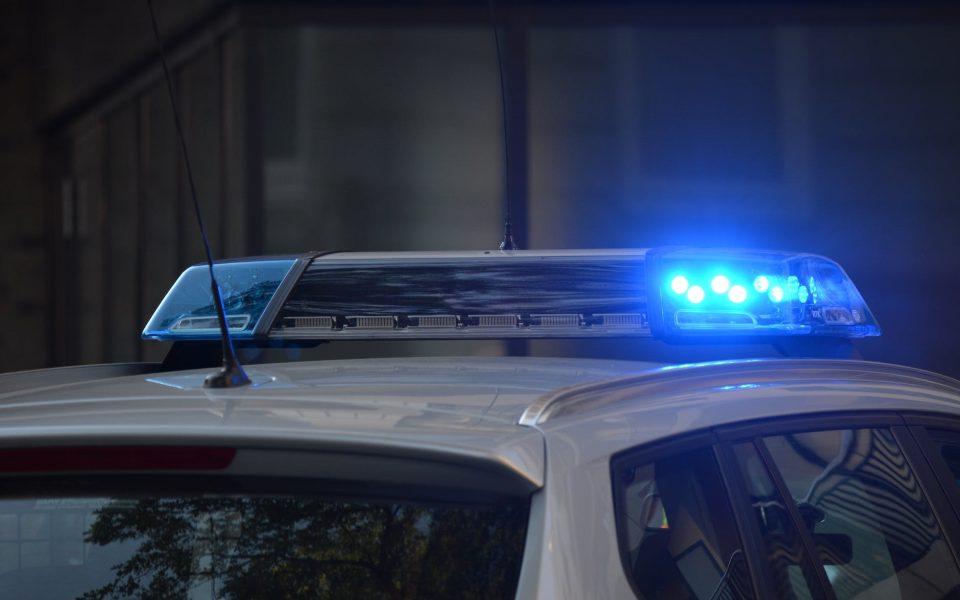In February, this column acknowledged the spate of gun violence in Triad bars and what we considered “the new normal.” Four days after it was published, another popular downtown patron was executed by two youths directly in front of a bar he was in earlier. Bullet casings were still being found on the street days afterward. Coming barely a month after a murder that happened at a bar across the street, the untimely death was finally enough to get the city to respond.
Two-and-a-half months later, SUV police cruisers slowly roam the streets, blue lights on a rotating strobe. The steady glow as they crawl is not to cause alarm, but to offer some form of stability to the patrons and workers of the downtown bars and restaurants. Deputies from the sheriff’s department walk from bar to bar in groups of two. They poke their heads in, introduce themselves to the bartenders on duty and some of the regulars, joke around a bit and move on. They might be back the next night, or sometime next week. The goal is not about intimidation or shakedowns or to boost numbers. The goal is safety. It’s about “community policing.” The welcoming response from the various businesses indicates that the idea might have potential.
Vivian Joiner, pioneer of modern Trade Street and owner of popular restaurant Sweet Potatoes (Well, shut my mouth!) stood in front of a crowd of her supporters and addressed the WSPD, the mayor, the sheriff and the community two months ago.
“We used to have community policing,” she said, while standing among the seated crowd. “I only know of one officer that I know by name now.”
And she was right. Police used to be a mainstay, and it was common for them to be seen interacting with the downtown community. They’d work doors with bar security when it wasn’t so cost prohibitive to hire them. They’d come by and check on places, assist the various homeless and, yes, act as a deterrent to those who would start trouble otherwise. In some cities, cops would live on the beats they walked. They would know the people of the places they worked.
There is, of course, still a societal issue of police profiling and the widespread deaths of Black and brown people at the hands of police. I’ve seen firsthand six police cars pull up and harass an on-the-clock doorguy because he “fit a description.” I’ve seen the same officers release inebriated white people who assaulted other customers.
But it also needs to be acknowledged that there is an increasing problem.
You can’t control what everyone is going to do. There are bars that are taking threats seriously, and there are others who are not doing anything to address the culture of violence that continues to congregate at certain establishments.
A bar can only do so much. Good security, attentive bartenders and enforced rules can only reduce incidents, not eliminate them.
On March 2, the Downtown Winston-Salem Partnership held an emergency public stakeholder meeting at the Millennium Center on Fifth Street. Among those in attendance were Forsyth County Sheriff Bobby Kimbrough, Mayor Joines, WSPD’s new Chief William Penn, and council members Jeff Macintosh and Kevin Mundy. Jason Thiel, head of the Downtown Winston-Salem Partnership, organized and moderated the meeting. It wasn’t the first meeting about the violence, but certainly was the first one where various downtown stakeholders — including bar owners, restaurant owners, employees, vendors, gallery owners and residents — finally felt heard by the political leaders of Winston-Salem.
And all it took was a couple of senseless murders.

After hearing from Winston-Salem police representatives about the staff shortages — about 150 positions, despite budget increases — Sheriff Kimbrough pledged to start sending deputies into the city to cover the WSPD shortfall. This includes patrolling popular areas on foot and generally being a presence where there wasn’t one before. WSPD Chief Penn pledged to have police cars on patrol in busy areas with blue lights on during busy nightlife hours.
Bar owners are doing what they can, too.
In a previous column, I spoke about how a bunch of bars are starting a coalition where offenders at one bar will be banned at others, and how we’re working to spread the word about any troublemakers. Assistant Chief Manny Gomez spoke of bars volunteering to share frontage camera footage with the WSPD’s new Real Time Crime Center, which allows the WSPD to monitor and respond to situations. Again, it should be noted that there is a slippery slope of allowing the police to access a private business camera system.
But since the March 2 meeting, it’s now common to see lighted patrols like the chief promised, and true to his word, Kimbrough’s deputies have been seen on Friday and Saturday nights getting to know the bars, the patrons and employees. DTWSP President Jason Thiel said that he has received “plenty of positive feedback” about the new measures.
“We’re grateful to the city and the sheriff’s department working together,” he said. “[The WSPD] embraced the additional support from the sheriff.”
A lot of the businesses seemed to be grateful too. Pictures started to appear on social media of sheriff’s deputies patrolling businesses. We’re starting to know some by name.
But this is just one part of the solution to ending community violence.
In this country, firearms are easily accessible and legally available with no training and virtually no oversight. The safety net that is supposed to protect and educate the poorest of the public seems to have been abandoned. The violence isn’t being addressed in a way that ends with “less cops.”
Systemic issues are still present and are not being addressed on a local or national level.
What we have is a band-aid for a gunshot wound, but it’s what we’ve got for now.
Join the First Amendment Society, a membership that goes directly to funding TCB‘s newsroom.
We believe that reporting can save the world.
The TCB First Amendment Society recognizes the vital role of a free, unfettered press with a bundling of local experiences designed to build community, and unique engagements with our newsroom that will help you understand, and shape, local journalism’s critical role in uplifting the people in our cities.
All revenue goes directly into the newsroom as reporters’ salaries and freelance commissions.


Leave a Reply